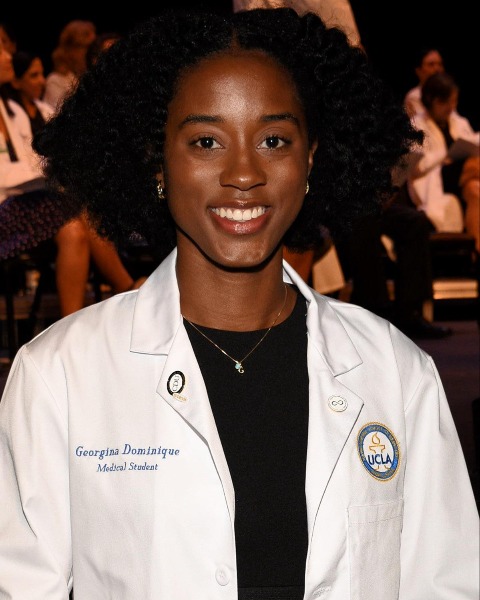Back
Poster, Podium & Video Sessions
Moderated Poster
MP30: Global Health/Humanitarian
MP30-03: Evaluation of Augmented Reality Technology in Global Urologic Surgery
Saturday, May 14, 2022
1:00 PM – 2:15 PM
Location: Room 222
Georgina Dominique*, Inglewood, CA, Kevin Kunitsky, Kansas City, MO, Gilles Natchagande, Michel Michaël Agounkpe, Fred D. Hodonou, Dodji Magloire Ines Yevi, Josué D. G. Avakoudjo, Cotonou, Benin, Kurt McCammon, Norfolk, VA, Graham Watson, East Sussex, United Kingdom, Kymora Scotland, Los Angeles, CA
Poster Presenter(s)
Introduction: Surgical missions are still largely on pause due to COVID-19, leading to missed opportunities for skill sharing between high-income and middle to low-income countries. New commercially available augmented reality (AR) technology facilitates surgical training, allowing mentors in one country to virtually train and skill-share with a mentee in another country during surgical cases in real-time. We hypothesize that AR technology is an effective live surgical training and mentorship modality.
Methods: To evaluate perceived effectiveness of AR technology in global urologic surgery training, surgeon mentors in the USA and UK worked with mentees in Benin performing surgical cases using the Proximie AR system. Proximie includes audiovisual capabilities allowing a mentor in any location to provide a mentee with real-time guidance during the procedure. Following each case, mentor and mentee individually completed a questionnaire assessing the technology.
Results: Trainers reported AR technology as easy to set-up and use in 73.3% of cases while the trainee reported easy set-up and use in 100% of cases. The visual quality was acceptable to trainers in 60% of cases and “looks like I’m there” in 40%. Visual input/ability to draw on screen had high impact in 80% of cases, with trainers rating the ability to provide anatomical guidance as invaluable or significant in 93.4% of cases. Audio and anatomical guidance had a significant impact for the trainee in 100% of cases. The quality of virtual training v. in-person training was equivalent in 100% of cases for the trainee while trainers found virtual training inferior in 66.7% of cases and equivalent in only 6.7% of cases. Difficulty connecting occurred often in only 1% of cases for trainers but in 12.5% of cases for the trainee. Trainers reported delay or time lag while using the technology in 40% of cases, with lag being problematic in 12.5% of cases. In contrast, the trainee reported rarely experiencing delay or time lag while using the technology in 100% of cases.
Conclusions: AR technology is useful in facilitating real-time surgical mentorship during the COVID-19 pandemic. The Proximie technology provides visualization that is acceptable and audiovisual capabilities that have significant positive impact on successful case completion. Though AR technology presents its own set of challenges such as difficulty in connecting virtually between trainer and trainee as well as delay or time lag during surgical cases, AR technology may prove a welcome alternative when in-person training is unavailable or limited.
Source of Funding: MediTech Trust UK
Methods: To evaluate perceived effectiveness of AR technology in global urologic surgery training, surgeon mentors in the USA and UK worked with mentees in Benin performing surgical cases using the Proximie AR system. Proximie includes audiovisual capabilities allowing a mentor in any location to provide a mentee with real-time guidance during the procedure. Following each case, mentor and mentee individually completed a questionnaire assessing the technology.
Results: Trainers reported AR technology as easy to set-up and use in 73.3% of cases while the trainee reported easy set-up and use in 100% of cases. The visual quality was acceptable to trainers in 60% of cases and “looks like I’m there” in 40%. Visual input/ability to draw on screen had high impact in 80% of cases, with trainers rating the ability to provide anatomical guidance as invaluable or significant in 93.4% of cases. Audio and anatomical guidance had a significant impact for the trainee in 100% of cases. The quality of virtual training v. in-person training was equivalent in 100% of cases for the trainee while trainers found virtual training inferior in 66.7% of cases and equivalent in only 6.7% of cases. Difficulty connecting occurred often in only 1% of cases for trainers but in 12.5% of cases for the trainee. Trainers reported delay or time lag while using the technology in 40% of cases, with lag being problematic in 12.5% of cases. In contrast, the trainee reported rarely experiencing delay or time lag while using the technology in 100% of cases.
Conclusions: AR technology is useful in facilitating real-time surgical mentorship during the COVID-19 pandemic. The Proximie technology provides visualization that is acceptable and audiovisual capabilities that have significant positive impact on successful case completion. Though AR technology presents its own set of challenges such as difficulty in connecting virtually between trainer and trainee as well as delay or time lag during surgical cases, AR technology may prove a welcome alternative when in-person training is unavailable or limited.
Source of Funding: MediTech Trust UK

.jpg)
.jpg)
